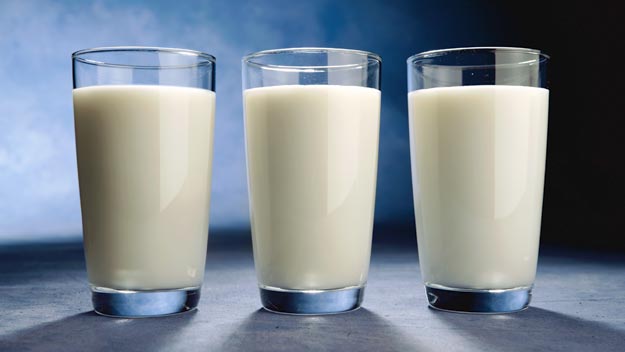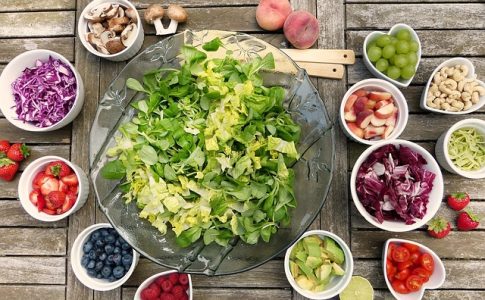Whole milk: nutrition facts
Whole milk is a type of food categorized among dairies. One portion of Whole milk (considering as a portion 1 cup, meaning more or less 244 grams of Whole milk) contains around 102 calories.
When compared to other dairies,
Whole milk has
less caloriess than the average of dairies, as they contain 42 calories per 100 grams, while other foods like the
Whole milk have
much more calories.
Recipes with Whole milk
You can use Whole milk as an ingredient for the next recipes:
Whole milk as natural remedy
Whole milk can be used as a natural remedy to treat the next diseases:
Whole milk nutritional facts
|
1 serving (244 gr.) |
100 gr. |
| Calories | 102 kcal | 42 kcal |
| Lipids | 2.37 g | 0.97 g |
| Saturated Fat | 1.545 g | 0.633 g |
| Polyunsaturated Fat | 0.085 g | 0.035 g |
| Monounsaturated Fat | 0.676 g | 0.277 g |
| Protein | 8.22 g | 3.37 g |
| Carbohydrate | 12.18 g | 4.99 g |
| Sugars | 12.69 g | 5.2 g |
| Fiber | -- g | -- g |
| Cholesterol | 12 mg | 5 mg |
| Minerals | | |
| Calcium | 305 mg | 125 mg |
| Iron | 0.07 mg | 0.03 mg |
| Sodio | 107 mg | 44 mg |
| Potassium | 366 mg | 150 mg |
| Magnesium | 27 mg | 11 mg |
| Phosphorus | 232 mg | 95 mg |
| Zinc | 1.02 mg | 0.42 mg |
| Vitamins | | |
| Vitamin A | 115 IU | 47 IU |
| Vitamin C | -- mg | -- mg |
| Vitamin D | 0.0 µg | 0 µg |
| Vitamin B1 (Thiamine) | 0.049 mg | 0.02 mg |
| Vitamin B2 (Riboflavin) | 0.451 mg | 0.185 mg |
| Vitamin B3 (Niacin) | 0.227 mg | 0.093 mg |
| Vitamin B5 (Pantothenic Acid ) | 0.881 mg | 0.361 mg |
| Vitamin B6 | 0.090 mg | 0.037 mg |
| Vitamin B12 (Cobalamin) | 1.15 µg | 0.47 µg |
| Vitamin E | 0.02 mg | 0.01 mg |
| Vitamin K | 0.2 µg | 0.1 µg |
| Choline | 43.2 mg | 17.7 mg |
| Arginine | 0.234 g | 0.096 g |
| Tyrosine | 0.415 g | 0.17 g |
| Folic Acid | 12 µg | 5 µg |
| Beta Carotene | 5 µg | 2 µg |
| Water | 219.40 g | 89.92 g |
| Caffeine | 0 mg | 0 mg |



No comments